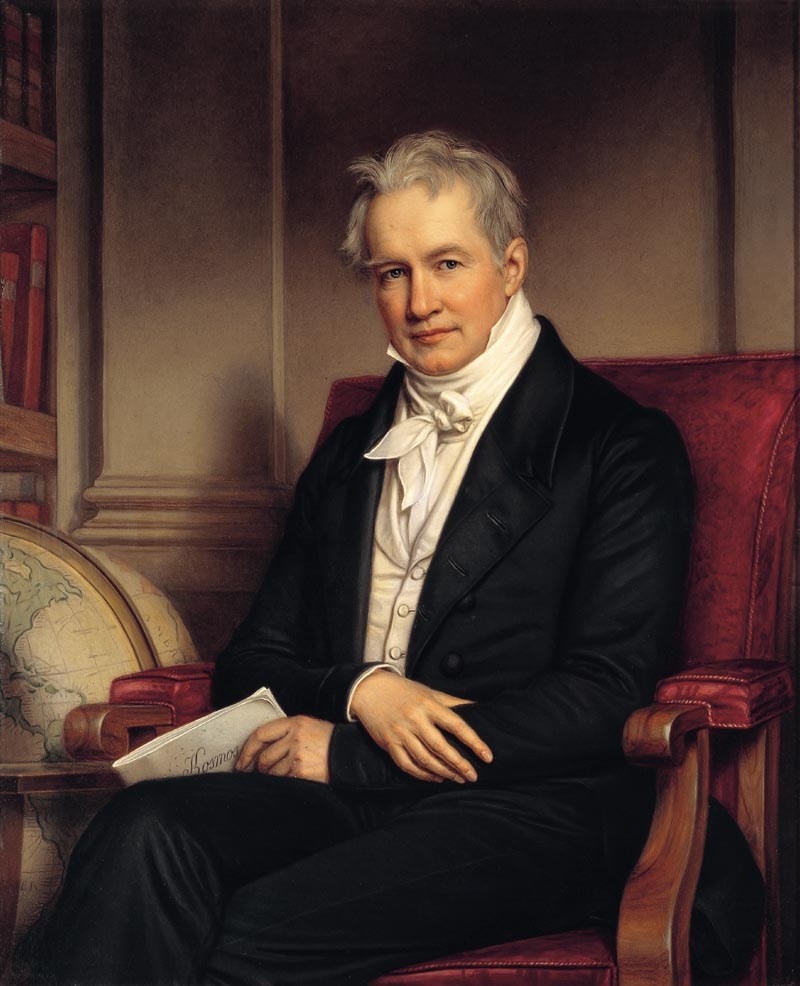Cosmos, essai d'une description physique du monde, 1847-1854
Alexander von Humboldt citations célèbres
Citation d'Alexander von Humboldt
Autres citations
Citation d'Alexander von Humboldt
Autres citations
“La description exacte et précise des phénomènes n'exige pas un exposé aride et incolore.”
Citation d'Alexander von Humboldt
Autres citations
Cosmos, essai d'une description physique du monde, 1847-1854
Cosmos, essai d'une description physique du monde, 1847-1854
Alexander von Humboldt: Citations en anglais
Equinoctial Regions of America (1814-1829)
Kosmos (1845 - 1847)
Contexte: While we maintain the unity of the human species, we at the same time repel the depressing assumption of superior and inferior races of men. There are nations more susceptible of cultivation, more highly civilized, more enobled by mental cultivation than others, but none in themselves nobler than others. All are in like degree designed for freedom; a freedom which, in the ruder conditions of society, belongs only to the individual, but which, in social states enjoying political institutions, appertains as a right to the whole body of the community.
Equinoctial Regions of America (1814-1829)
Contexte: In order to ameliorate without commotion new institutions must be made, as it were, to rise out of those which the barbarism of centuries has consecrated. It will one day seem incredible that until the year 1826 there existed no law in the Great Antilles to prevent the sale of young infants and their separation from their parents, or to prohibit the degrading custom of marking the negroes with a hot iron, merely to enable these human cattle to be more easily recognized.
Kosmos (1845 - 1847)
Contexte: The principal impulse by which I was directed was the earnest endeavor to comprehend the phenomena of physical objects in their general connection, and to represent nature as one great whole, moved and animated by internal forces. My intercourse with highly-gifted men early led me to discover that, without an earnest striving to attain to a knowledge of special branches of study, all attempts to give a grand and general view of the universe would be nothing more than a vain illusion. These special departments in the great domain of natural science are, moreover, capable of being reciprocally fructified by means of the appropriative forces by which they are endowed.
Kosmos (1845 - 1847)
Contexte: From the remotest nebulæ and from the revolving double stars, we have descended to the minutest organisms of animal creation, whether manifested in the depths of ocean or on the surface of our globe, and to the delicate vegetable germs which clothe the naked declivity of the ice-crowned mountain summit; and here we have been able to arrange these phenomena according to partially known laws; but other laws of a more mysterious nature rule the higher spheres of the organic world, in which is comprised the human species in all its varied conformation, its creative intellectual power, and the languages to which it has given existence. A physical delineation of nature terminates at the point where the sphere of intellect begins, and a new world of mind is opened to our view. It marks the limit, but does not pass it.
Equinoctial Regions of America (1814-1829)
Conversation reported in B.L. Rayner, Life of Jefferson (1834), p. 356. The exact date is not known, but the conversation took place in one of several meetings with the President during Humboldt's visit to Washington, D.C., from June 1 to June 27, 1804.
Equinoctial Regions of America (1814-1829)
Equinoctial Regions of America (1814-1829)
“Only what we have wrought into our character during life can we take away with us.”
As quoted in Seed-grain for Thought and Discussion (1856) by Anna Cabot Lowell, Vol. 1, p. 260
